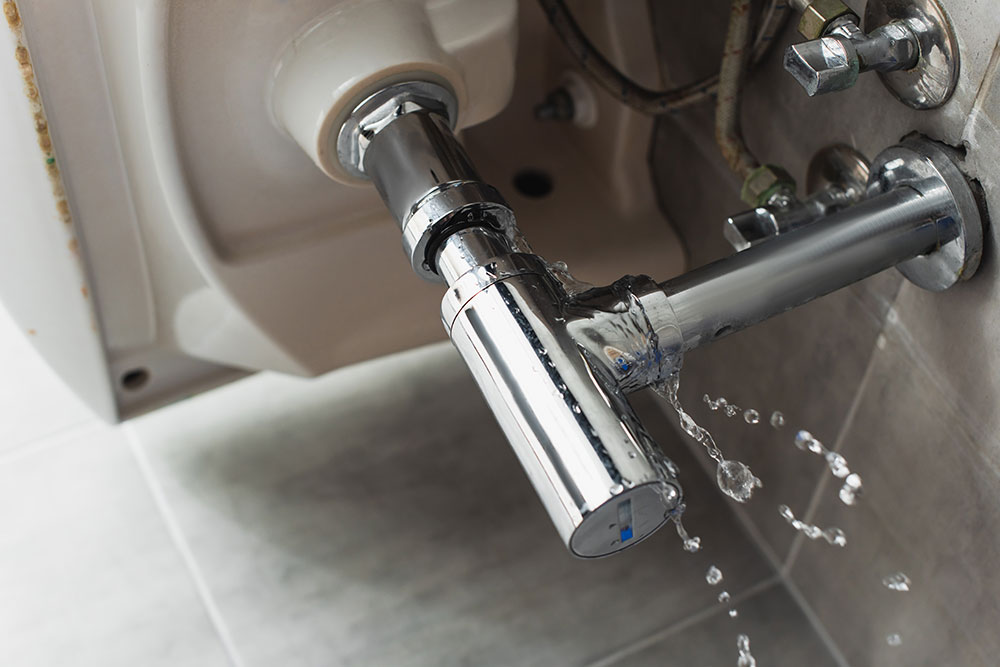No family is immune to having a clogged sink. With the amount of use it receives throughout the year, it is unavoidable that it will require some care to maintain its integrity. So we thought we’d educate you with some important suggestions and steps you may take to unclog your sink should you see a problem. That way, you may save some money by not having to call for a professional plumbing services when you know the most efficient techniques to unblock tiny clogs yourself. Read on for our best advice on how to prepare yourself to properly unclog a sink.
Use A Plunger
A plunger is something that everyone has heard of. However, not everyone is aware of how to utilise it properly to unclog a sink. To get the most out of the plunger, there are a few basic measures you should follow before utilising it. To begin, make sure that all standing water in the sink has been removed, as well as any food or hair debris. Put on the rubber gloves and a cup and drain the standing water so that the basin is substantially dry. Make careful to cover the excess with an old cloth or towel. Check that the plughole has been cleaned and cleared as well. Remove whatever debris you can reach and then test to see whether this has helped the water flow away. Simply run your tap fast to examine if the water is now draining. After you’ve completed the preceding steps, it’s time to grip the plunger. Place the plunger around the sinkhole and then fill the basin with a tiny amount of water (around an inch should do). Now, firmly squeeze the plunger up and down, being careful not to overdo it. This will generate suction, which should remove any tiny obstructions that are preventing your sink from emptying. If this does not work, you may need to try another option (described below) or hire a professional plumber.
Use DIY Tools
There are also a variety of useful tools available to assist you eliminate difficult sink obstructions. Every homeowner should have a drain snake in their toolbox. It is a long, flexible instrument that may be used to loosen tough obstructions in your plumbing system. They are inexpensive and simple to use, requiring no force to operate. All you have to do is rotate the handle back and forth, allowing the tool’s head to do the work for you. You may get one of these at your local hardware store or online at sites such as Amazon. This is a do-it-yourself drain snake that may be used as a fast substitute if you don’t have the item on hand. Simply straighten a coat hanger and gently push it down the hole in your sink. This can be beneficial and successful in unclogging your sink with a modest amount of pressure. This will not always work, but it is risk-free to try. Two empty bottles and some hot water are all you need. Fill the bottles with hot water, set them at the sink’s entrance, and aggressively press the water down. This may function as a lesser form of a drain jet, dislodging obstructions and flushing them down your pipes.
Use Drain Un-Blockers
Although this is debatable, the use of some chemicals can be useful in dislodging tiny clogs without the need for a plumber. Sink unclogging chemicals operate by dissolving the obstruction and sending it via the drain line. Pour a whole container of the chemical down your pipes and then follow the application directions on the bottle. After that, flush hot water down into your drains, which is an excellent method to maintain your drain clean of ordinary clogs that can arise from day to day use. However, it is not suggested that this be done on a frequent basis. Most chemicals are dangerous to the environment, and if used on a frequent basis, they may damage your pipes, producing greater plumbing problems that you will have to fix.
Call a Plumber
As previously said, there are several stumbling blocks that require expert assistance to resolve. To properly address the sink blockage, you must know when to put up your DIY hat and hire a plumber. A plumber has access to higher-quality equipment than what you may get at a hardware store. They also have investigative equipment that can diagnose your problem and help them choose the finest remedy. They will be better able to cope with the more intricate obstructions that you cannot unclog, whether they jet your drain with high powered equipment or use their drain rods to get to locations that your little drain snake could not reach. As a result, it is critical that you recognise your own limitations and seek expert assistance rather than attempting DIY remedies.
To Conclude
Hopefully, you can add a few drain clearing solutions to your arsenal the next time you find the water has stopped draining down the sink. Not all obstructions necessitate contacting a specialist right away. There are certain acts you can take on your own that need little more than patience. However, if you are ever unsure or uncomfortable trying to clean the drain yourself, consult a professional. After all, that is why they are there!


